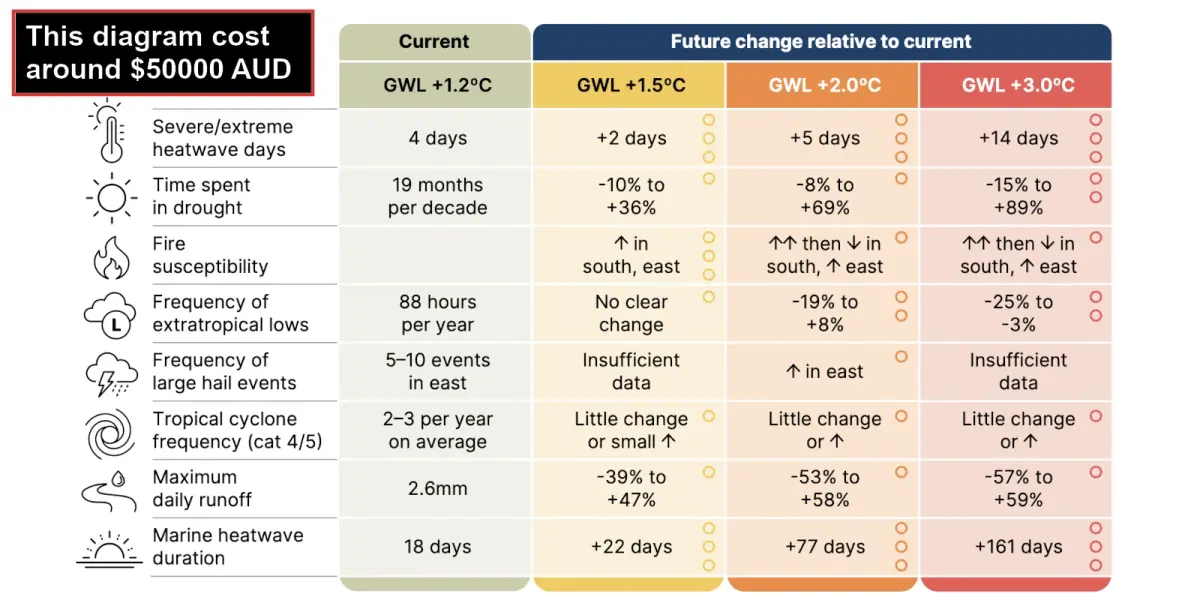
Essay by Eric Worrall
“… even the authors say that you can’t use it to determine our emission targets …”
‘Complete abuse of taxpayer money’: Mammoth price tag of Labor’s controversial climate change report blasted
The eight-figure pricetag of Labor’s controversial National Climate Risk Assessment makes it a “complete abuse of taxpayer money”, according to Nationals Senator Matt Canavan.
Matt Hampson Digital Reporter
September 16, 2025 – 7:50PM
The price tag of Labor’s National Climate Risk Assessment has been called a “complete abuse of taxpayer money”, as the Daily Telegraph reveals the Australian public has forked out just short of $23 million for the controversial document.
…
Senator Matt Canavan told SkyNews.com.au the report’s cost shows it is a “complete abuse of taxpayer money”.
“This report is a complete waste because even the authors say that you can’t use it to determine our emission targets,” Mr Canavan said on Tuesday.
“The government has spent millions of taxpayer dollars on a scare campaign meant to justify the decisions they have already taken. It is a complete abuse of taxpayer money.”
Institute of Public Affairs research fellow Saxon Davidson joined the condemnation of the hefty figure spent on the forecast.
“The cost for this blatant piece of net zero propaganda is a disgrace,” Mr Davidson told SkyNews.com.au on Tuesday.
…
Read more: https://www.skynews.com.au/australia-news/complete-abuse-of-taxpayer-money-mammoth-price-tag-of-labors-controversial-climate-change-report-blasted/news-story/92b7b67e419e3abf30d4b3c7eeb678d8
The report cost $22.9 million for 284 pages, or just over $80,600 / page. Nice work if you can get it.
As we pointed out in our previous article on this report, the Aussie government isn’t even following its own climate advice, which shows how little the people who commissioned the report value its contents. They approved the expansion of a major fossil fuel project a few days before the report was published.
That disclaimer clause Senator Matt Canavan mentioned – as Mike pointed out in our previous article on this report, the authors of the report don’t in any way guarantee the contents of the report, nor do they recommend it be used as the basis of policy.
DISCLAIMER
The Australian Government acting through the Australian Climate Service, a partnership between the Bureau of Meteorology, CSIRO, Australian Bureau of Statistics and Geoscience Australia, has exercised due care and skill in preparing and compiling the information and data in this publication. Notwithstanding, the Australian Climate Service, its partners, employees and advisers disclaim all liability, including liability for negligence and for any loss, damage, injury, expense or cost incurred by any person as a result of accessing, using or relying on any of the information or data in this publication to the maximum extent permitted by law.It does not represent a statement of the policy of the Australian Government. This report does not constitute personal financial, legal or other professional advice. Users should obtain any appropriate independent professional advice relevant to their particular circumstance
Read more: Page 273 of Australia’s National Climate Risk Assessment
In other words, if anyone is foolish enough to follow the advice given in the report, and following the advice blows up their business or the Australian economy, the authors of the report take no responsibility or liability.
In the business world this kind of disclaimer on such an expensive report would be completely unacceptable. The last time I received an expensive report was a cybersecurity report which cost around $8000 / page, a tenth of the cost of this climate report. Much of that $8000 was spent on insurance for the authors, professional indemnity against the possibility the advice in the report was incorrect or that they had missed something important. That expensive cybersecurity report did not contain a disclaimer against using the advice in the report, it was honest advice about what should be done to improve the software.
Do climate scientists and government bureaus do not have enough confidence in that advice to expose themselves to any kind of personal or institutional risk arising from the climate advice they provide? Why would anyone take a report with such a disclaimer seriously?



